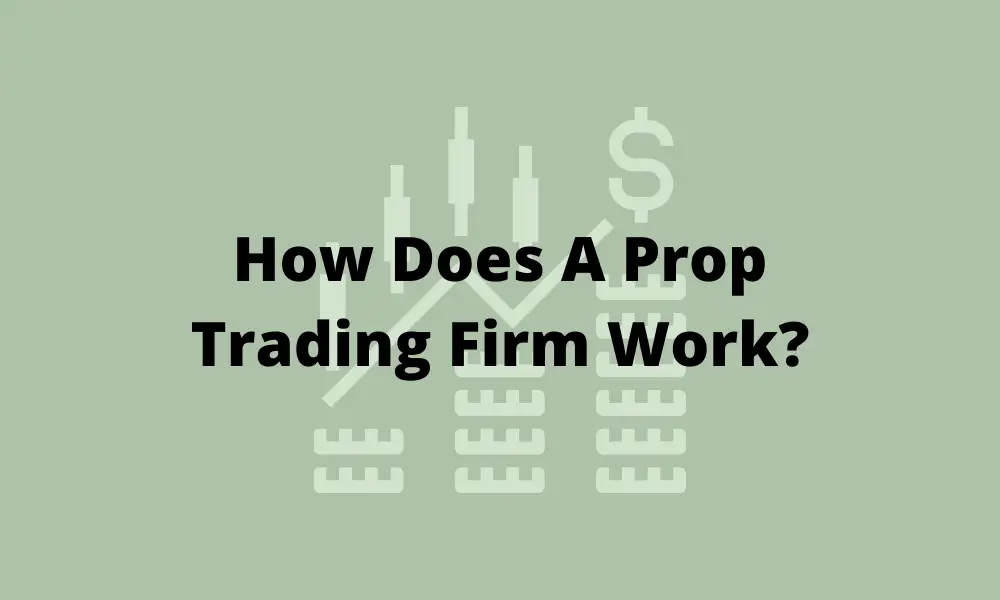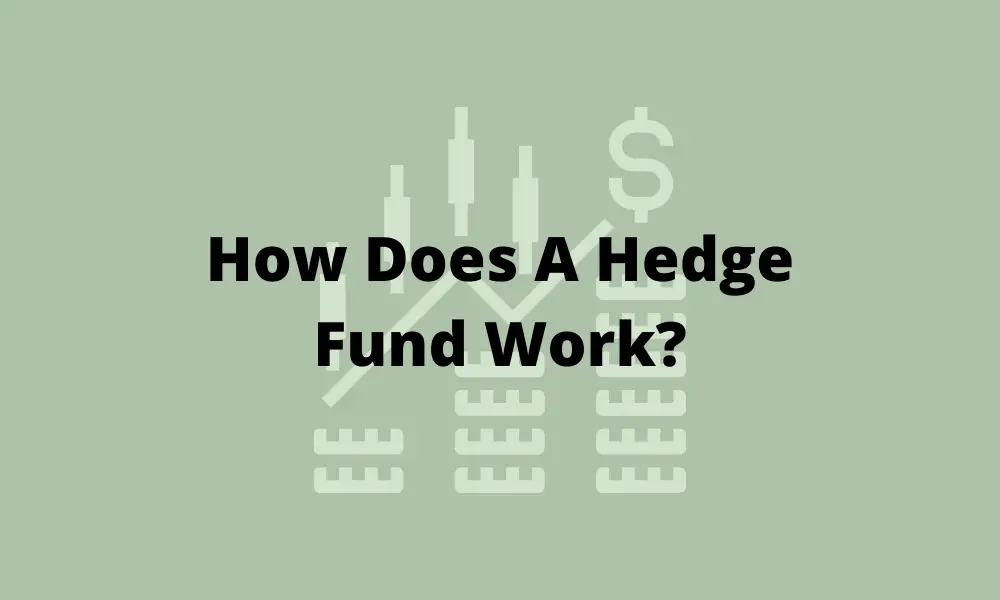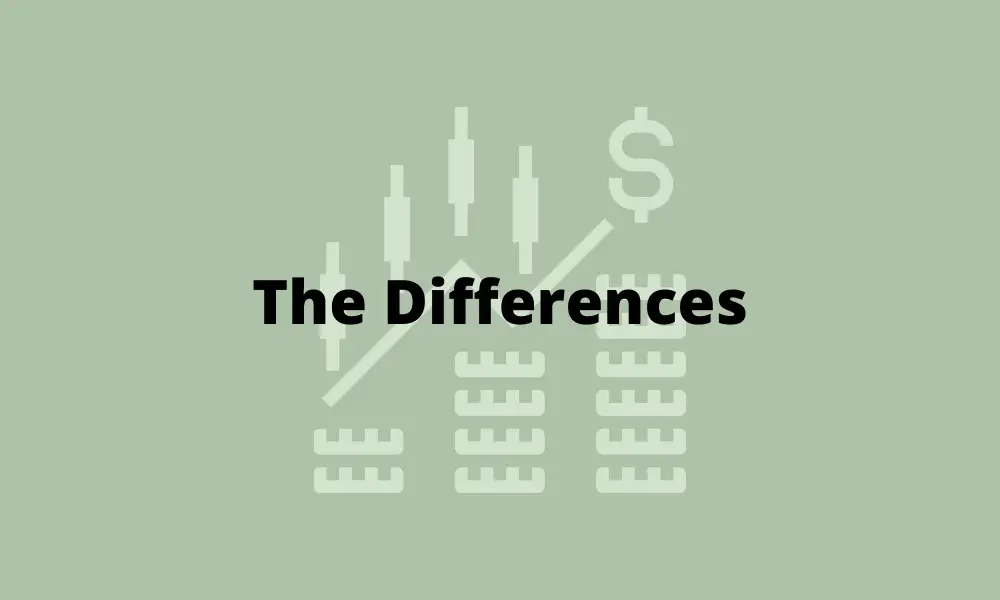Hedge funds and Prop Trading firms are vehicles of investment created exclusively for traders who meet specific criteria.
Both have similarities and differences, advantages and disadvantages while maintaining an air of mystery to the general public.
To help de-mystify the world of hedge fund vs prop trading, I’ve put together this article to break down the basics of both types of firms along with the strategies they implement, their payment structures, what makes them similar to each other, and what makes them different.
While both require active management, can potentially provide more significant returns than other types of trading, and implement similar investing strategies, they do have a few stark differences between them.
Let’s go ahead and take a look at each, starting with how each type of firm works.
How Does A Prop Trading Firm Work?

Proprietary (Prop) trading is a type of trading carried out by banks and other trading firms where they use the institution’s own money instead of their client’s.
This is done to maximize profits from each successful trade rather than relying on receiving commissions.
Firms prefer this form of trading because it makes them the sole profiteer instead of acting as a middleman for their clients.
Now, they do pay a commission to us, their traders, but that’s still far away from the sub-1% they receive in traditional trading commissions
So, you may be looking for the answer to how do prop traders get paid. The answer is they can get paid in three different variations.
In the first variation, the prop trading firm takes anywhere between 20 – 50% of the trading profits.
In the second scenario, the firms take almost nothing from the trading profits. They simply charge software usage, seat, and training fees.
And, the third method is employing people as floor traders. These are less experienced traders with a fixed income and no share of the profits. This is also a traditional job rather than online prop firms such as FTMO, TopStep, etc.
Each variation does come with hefty bonuses.
How Does A Hedge Fund Work?

The term hedge refers to protection. Just like a garden hedge that provides protection to a house, the idea of a hedge fund was to protect or minimize the risk posed to an investor’s capital.
However, that is not the case anymore.
A hedge fund has become a company that utilizes a pool of capital provided to them by qualified investors to implement high-risk strategies to generate as much profit as possible.
Hedge funds generally accept two types of investors – qualified investors and people well-known to the hedge fund manager.
To be considered a qualified investor, your personal annual salary must be above $200,000. You also need to have a net worth of above $1 million, be an executive or director of a company, or have a trust fund worth over $5 million.
The strategies a hedge fund implements dictate the type of fund it is. The four strategies are:
- Global macro.
- Directional.
- Event-driven.
- Relative value (arbitrage).
A common high-risk strategy implemented by hedge fund managers is to leverage borrowed money in an attempt to increase returns.
Hedge funds also operate on a ‘2 and 20’ fee structure. What is a 2 and 20 fee structure?
This refers to the structure through which a hedge fund manager gets paid. Each investor has to pay a 2% management fee upfront and a 20% fee when the funds make a profit for the investor.
Do hedge funds do prop trading?
Although prop traders and hedge fund managers have similar investment models, hedge funds do not do prop trading as they only use money from investors to execute trades while pocketing a mandatory account fee plus a 20% commission off each profitable trade.
The Differences Between Hedge Funds vs Prop Trading

The difference in payment structure
Hedge fund managers make 2% fees upfront and only 20% of commission from profits.
Prop traders get to keep between 50 to 90% of their profits but do not get paid a salary unless they are floor traders.
This means, prop traders can potentially make higher returns than hedge fund managers.
Trading style
Since a hedge fund manager’s pay is dependent on the profits without bearing any losses in case things take a turn for the worse, they tend to take higher risks to get paid higher commissions.
On the other hand, Prop traders err on the side of caution as they are executing trades with their own money.
Funding
Hedge funds run with investor money and are open-ended, meaning investors can leave at any time.
It also means that investors get to keep a majority of the profits made in each trade. Prop trading firms use their own capital, which means they get to keep their earnings.
Liquidity
Prop trading offers more liquidity as you can have as many open orders as you want.
Although hedge funds are open-ended, they are less liquid and require investors to lock in their money for a more extended period of time.
Pros & Cons Of Proprietary Trading
The Pros of Prop Trading Are:
- You get to keep anywhere between 50 – 59% of your trading profits as a prop trader.
- Firms provide training and mentorship to new recruits through their own experienced traders.
- Due to training, new traders can become profitable much faster than in other trading firms.
- Prop traders have a larger amount of capital to trade with compared to trading with their own funds.
The Cons of Prop Trading Are:
- Prop traders are required to deposit a sizeable capital before trading with the firm’s money which will be used to cover any losses occurred while trading.
- If you are not a floor trader, you won’t see any pay for a few months while you train and learn the ropes with your mentor.
- To get paid a fixed salary as a prop trader, you need to be a floor trader. As more prop firms go online, there are fewer seats for floor traders, which means competition is very high.
- You do not make 100% of your profits, but you bear 100% of your losses.
Pros & Cons Of Hedge Funds
The Pros of Hedge Funds Are:
- The SEC does not monitor hedge funds as strictly as other firms as hedge funds are not publicly traded companies. This allows them free reign on the methods they implement to maximize their profits.
- Since the hedge fund manager’s remuneration is based on the profits they generate for their investors, most can be depended on to make the best decisions to maintain profitability.
- Due to the flexibility awarded to hedge fund managers, the diversity of their investment strategies helps to protect (hedge) most of their trades.
The Cons of Hedge Funds Are:
- Although hedge funds are open-ended, they are less liquid and require investors to lock in their money for a period of time and can only withdraw money infrequently. This could be monthly or longer.
- As an investor, you do not have any knowledge of the actions carried out by hedge fund managers using your own money as they do not require to disclose it.
- Hedge funds can have confounding rules and fees, which can make it unclear how much of the profits hedge fund managers actually receive. A Chicago-based advisory company, Simon Lack, claimed hedge fund managers took over 80% of gross profit, leaving investors with less than 20%.
- Due to hedge fund managers being able to take high-risk strategies and having the ability to borrow an unlimited amount of money, a simple mistake can lead to costly consequences for investors.
Conclusion
Due to the light regulation around hedge funds, investors can expect significant returns, while hedge fund managers can use almost any means available to them to generate these profits.
However, the lack of regulation means higher risks are taken in this industry-leading to losses experienced on a massive scale.
Prop trading firms can implement s similar strategy structure. However, the firms use their own money to execute trades, leading to more cautious behavior.
If you are interested in finding out more about prop trading and how to become one, go ahead and read my article titled ‘What is Proprietary trading?‘ to get a better idea of it.
